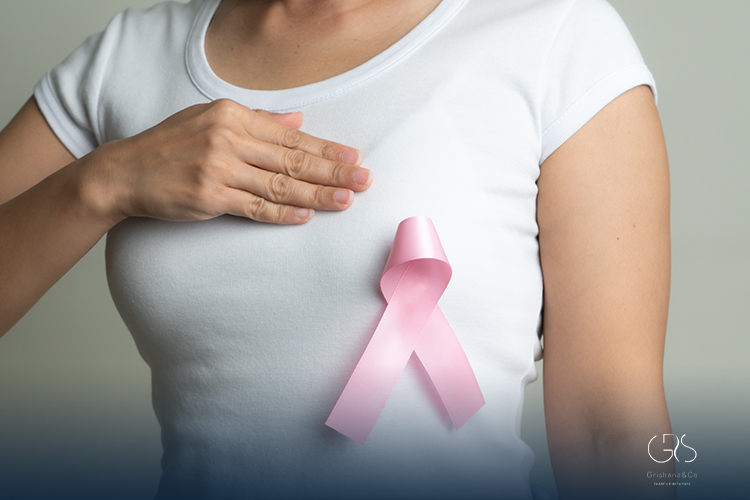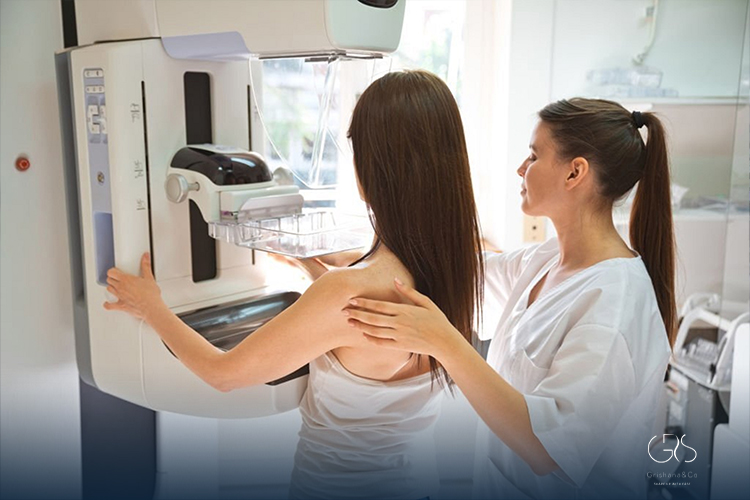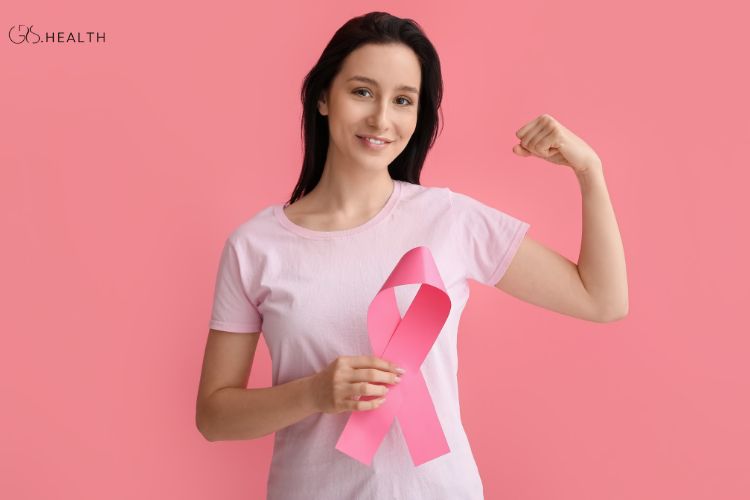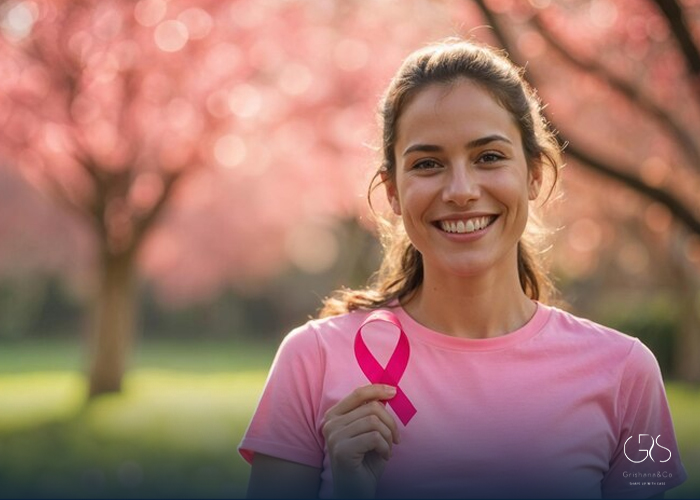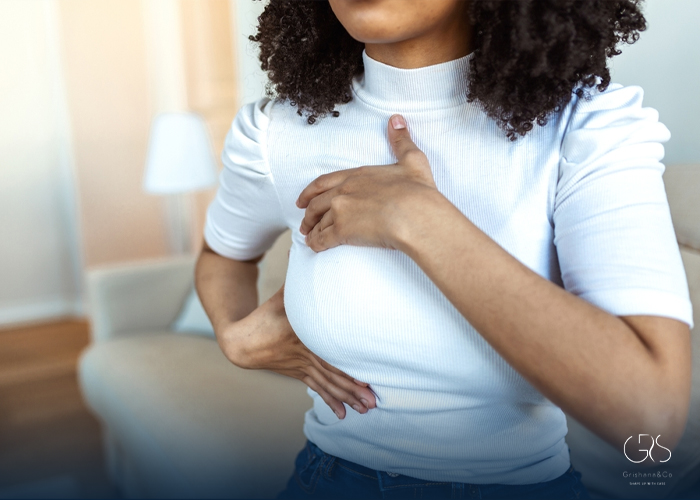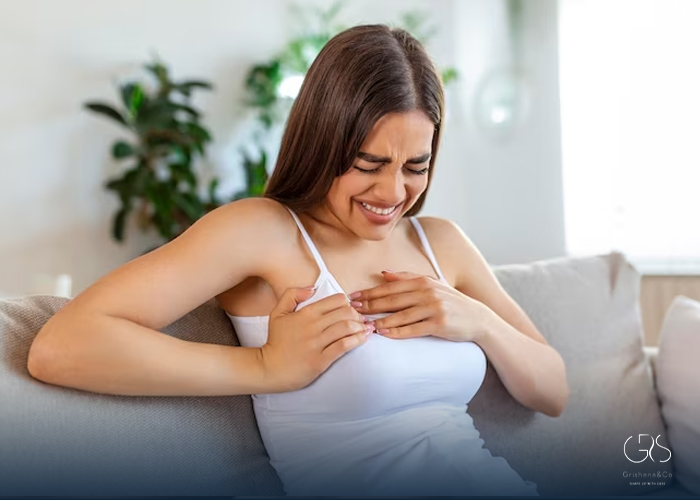Itching of the nipples and breasts is a common complaint that can range from mild irritation to a sign of more serious underlying conditions. Understanding the causes behind itchy nipples and breasts can help individuals take timely action, whether through simple self-care or seeking professional help.
1. Dry Skin & Environmental Factors
Dry skin is a widespread cause of itchy nipples and breasts. Triggers include low humidity, frequent hot showers, use of harsh soaps, and cold weather. Dry skin reduces skin barrier function, increasing sensitivity and leading to discomfort.
(To learn more about Dry skin routine please refer to this article)
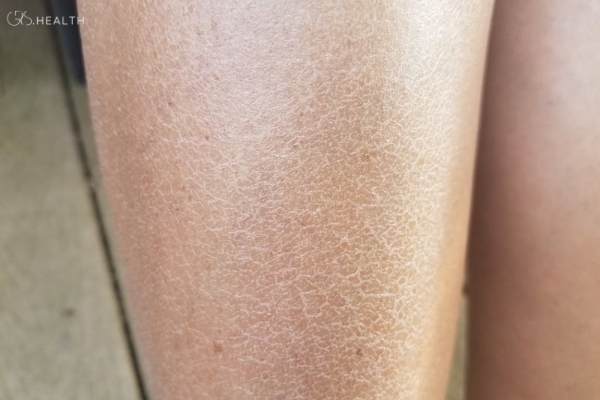
2. Contact Dermatitis (Allergies & Irritants)
Contact dermatitis—either irritant or allergic—occurs when the skin reacts to substances such as detergents, lotions, perfumes, fabrics, metal in underwire bras, or nipple creams. Minimizing exposure to these triggers often relieves itchy nipples and breasts.
3. Fabric Irritation & Friction
Tight or synthetic fabrics, unwashed bras, or frequent rubbing (e.g., during exercise) can inflame the skin, causing itchy nipples and breasts. Choosing breathable fabrics and properly fitting garments can help prevent irritation .
4. Eczema (Atopic Dermatitis)
Breast eczema or nipple eczema—forms of atopic dermatitis—can cause red, scaly, itchy patches on nipples, areolas, or breast folds. Genetic predisposition, immune overactivity, environmental factors, and stress contribute to its manifestation.
5. Yeast (Fungal) Infections
In warm, moist areas like under the breasts, yeast infections can result in itchy nipples and breasts. Often seen in breastfeeding individuals, excess moisture encourages fungal growth. However, some sources note that nipple itching may also stem from dermatitis or milk duct issues rather than yeast.
6. Mastitis & Breast Infections
Mastitis is an infection that mostly affects breastfeeding individuals, causing inflammation, redness, warmth, tenderness, sometimes fever, and itchy nipples and breasts. Prompt medical care is advised if systemic symptoms accompany the itch.
7. Hormonal Changes
Hormonal fluctuations during menstruation, pregnancy, or menopause can lead to increased breast sensitivity and occasional itchy nipples and breasts.
8. Breast Growth & Stretching
Rapid changes—puberty, weight gain, pregnancy—stretch the skin, potentially causing minor inflammation or stretch marks, both of which may lead to itchiness .
9. Heat Rash & Intertrigo
Warmth, sweating, and friction under breast folds can result in heat rash or intertrigo, characterised by red, bumpy, often itchy skin .
10. Psoriasis & Other Skin Conditions
Psoriasis occasionally affects the breast area, resulting in itchy, flaky patches. Other dermatologic issues such as hyperkeratosis or benign nipple adenomas can also cause localized itchy nipples and breasts .
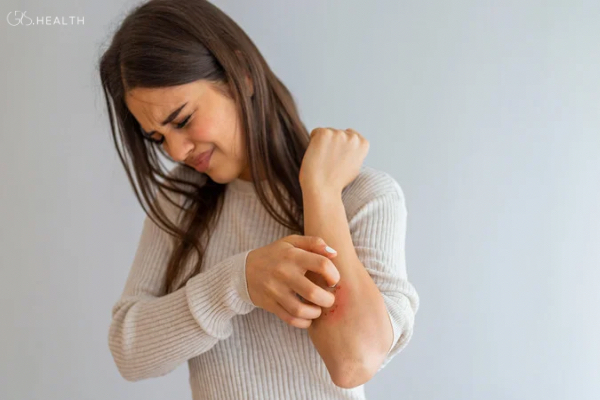
11. Underlying Health Conditions
Conditions like hypothyroidism or diabetes interfere with skin health, potentially leading to dryness or secondary infections (e.g., yeast), resulting in itchy nipples and breasts .
12. Post-Surgical or Radiation Effects
Itching may be part of post-operative healing or a side effect of radiation therapy—typically resembling sunburn or skin dryness.
13. Rare—but Serious—Causes: Breast Cancer
Most cases of itchy nipples and breasts are benign. Yet, persistent itching may sometimes signal rare cancers such as:
- Paget’s disease of the nipple: Causes a red, scaly rash on the nipple or areola. Often misdiagnosed as eczema. A biopsy establishes the diagnosis. It’s frequently accompanied by underlying breast cancer .
- Inflammatory breast cancer (IBC): A rare, aggressive cancer featuring rapid swelling, redness, warmth, and sometimes itchiness, along with orange-peel skin texture.
Prompt evaluation is essential when itching is accompanied by lumps, skin changes, discharge, or other concerning signs.
When to Consult a Healthcare Professional
- Itching persists beyond a few weeks despite self-care.
- Other symptoms appear: lumps, discharge, bleeding, rash, pain, fever, or systemic illness.
- History of breast cancer or other risk factors.
Your provider may recommend physical exams, imaging (e.g., mammogram, ultrasound), or biopsy to rule out serious conditions.
Self-Care and Prevention Tips
- Use gentle, fragrance-free cleansers and detergents.
- Moisturize regularly, especially after bathing.
- Wear breathable, clean, well-fitting bras—preferably cotton.
- Avoid known irritants (e.g., harsh soaps, certain fabrics).
- Keep the area dry, especially after sweating.
- Manage eczema or dermatitis with topical emollients or prescribed steroids.
- Address dry skin with hydration and humidifiers.
- Treat yeast infections or mastitis under medical supervision.
- Be attentive to new or persistent changes in breast or nipple skin.
Conclusion
Itching of the nipples and breasts is usually benign and often resolves with simple measures like better hydration, gentle skincare, and addressing clothing irritants. However, persistent symptoms—especially when accompanied by skin changes, pain, or lumps—warrant prompt medical evaluation. Staying informed about benign and more serious causes empowers individuals to take appropriate and timely action.
Sources
- nhs.uk, Paget's disease of the nipple
- Verywellhealth, Do Itchy Breasts Indicate Breast Cancer?



